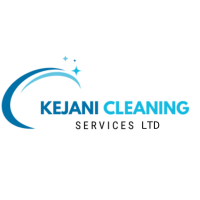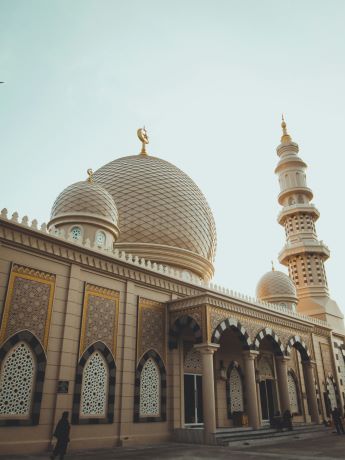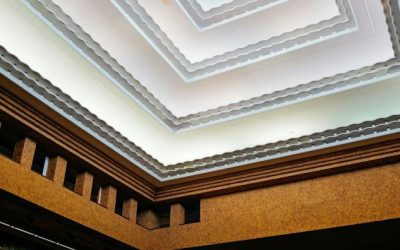Mosques, like all places of worship, require a unique level of care—especially after construction or renovation work. Dust, debris, adhesives, and paint may settle on carpets, prayer rugs, tile work, ablution areas, and minbars, all of which must be carefully cleaned before worship resumes.
In Islam, cleanliness is not only a hygienic necessity—it’s a spiritual obligation. Therefore, post-construction cleaning services for mosques must uphold the highest standards of both physical and ritual cleanliness.
This article outlines the importance of professional mosque post-construction cleaning service, what services are included, and how to ensure compliance with both safety and Islamic cleanliness practices.
Why Post-Construction Cleaning for Mosques Matters
After construction or remodeling of a mosque—whether it’s a new dome, tile flooring, expanded prayer hall, or renovation of wudu (ablution) stations—layers of dust, cement particles, and other contaminants remain. These are not just unsightly, but in many cases, ritually impure (najasah).
Key reasons post-construction cleaning is essential:
-
Prepares the space for daily prayers (salah) and Jumu’ah gatherings
-
Removes construction residue from sensitive prayer areas
-
Ensures carpets and prayer rugs are clean and tahir (pure)
-
Sanitizes areas for ablution and congregational use
-
Reduces respiratory health risks associated with construction dust
What Makes Mosque Cleaning Unique?
1. Religious Considerations
In Islam, spaces for prayer must be free from impurities. That includes:
-
Visible dirt and debris
-
Bodily fluids or residue from workers
-
Harsh chemical residues that may irritate skin or lungs
The cleaning crew must also respect:
-
Qibla direction when moving prayer mats
-
Sacred objects like Qur’ans, wooden minbars, and mihrabs
-
Rules about footwear in carpeted areas
2. Delicate Surfaces and Furnishings
Mosques often feature:
-
Handwoven carpets
-
Ornate tile work
-
Wooden lattice dividers and minbars
-
Crystal chandeliers and domes
These require specialized, non-abrasive cleaning solutions and methods.
What’s Included in Mosque Post-Construction Cleaning?
✅ 1. Dust and Debris Removal
Using HEPA vacuum systems, professionals remove fine dust from:
-
Carpets and prayer rugs
-
Wall tiles and latticework
-
Window sills and fans
-
Air ducts and chandeliers
This is especially important before Jumu’ah prayers, where attendance is high.
✅ 2. Deep Cleaning of Prayer Areas
-
Steam cleaning and vacuuming of carpets
-
Wiping of wood and marble with pH-neutral cleaners
-
Sanitizing of minbars, pulpit areas, and Qur’an shelves
-
Removal of adhesive, tape, and paint splatter
✅ 3. Ablution and Bathroom Area Cleaning
Wudu areas must be spotless and hygienic. Tasks include:
-
Deep scrubbing of basins, taps, and floors
-
Disinfection using non-toxic, fragrance-free agents
-
De-scaling of tiles and removal of grout stains
-
Unclogging and cleaning of drains
✅ 4. Window and Dome Cleaning
Mosques often feature large windows and decorative domes. Services include:
-
Glass polishing with non-ammonia products
-
Gentle exterior cleaning of domes using telescopic equipment
-
Removal of concrete splatter from windowsills
✅ 5. Sanitization of High-Touch Surfaces
Areas like door handles, shoe racks, and microphones are disinfected using:
-
Eco-friendly sprays
-
Soft microfiber cloths to avoid damage
-
Hospital-grade yet halal-safe cleaners
Eco-Friendly and Halal-Safe Products
As mosques are used by people of all ages—including children, the elderly, and people with sensitivities—cleaning products should be:
-
Free from alcohol and animal-derived ingredients
-
Biodegradable and non-toxic
-
Locally sourced when possible
✅ Recommended Products:
-
Vinegar + baking soda for surface stains and deodorizing
-
Castile soap for multipurpose cleaning
-
Grounded brand (Kenyan-made): Offers eco-safe disinfectants, floor cleaners, and multipurpose sprays that are effective, affordable, and made from plant-based ingredients
These are ideal for mosques because they clean thoroughly without compromising ritual purity.
Common Challenges in Mosque Post-Construction Cleaning
-
Cleaning During Active Use: Many mosques remain partially open. Professionals must work around prayer times, ideally in early morning or late-night shifts.
-
Delicate Materials: Intricate calligraphy tiles, soft prayer mats, and wood carvings require soft brushes, non-abrasive products, and low-moisture techniques.
-
Large Areas: Spacious mosques with separate prayer halls for men and women, classrooms, and libraries may take multiple days to clean.
-
Footwear Restrictions: Teams must follow no-shoe zones and may need to wear indoor slippers or foot covers.
Safety and Compliance
Mosque post-construction sites present health and safety risks. Cleaning companies must:
-
Provide PPE for staff (gloves, goggles, masks)
-
Follow OSHA-compliant procedures
-
Secure scaffolding or ladders for high dusting
-
Carry insurance and liability coverage
Why Hire a Professional Post-Construction Cleaning Service?
Volunteers or mosque committees may not have the tools, time, or techniques required. Hiring a professional post construction cleaning team ensures:
-
Thorough removal of all hazardous debris
-
Sanitization of bathrooms and high-touch areas
-
Respectful, faith-conscious approach
-
Quick turnaround to prepare for major events or Friday prayers
-
Use of halal-safe and eco-friendly products
Kejani Cleaning Services: Trusted Experts in Mosque Cleaning
Serving Nairobi, Kisumu, Mombasa, and other major towns, Kejani Cleaning Services Limited offers professional post-construction and renovation cleaning for mosques of all sizes.
What we offer:
-
HEPA vacuum dust removal
-
Carpet shampooing and deodorizing
-
Window and chandelier cleaning
-
Deep wash of ablution and toilet areas
-
Customizable, budget-friendly plans
-
Discreet, respectful, trained personnel
Book Your Mosque Cleaning Today
📞 Call: +254 115 887 085
🌍 Visit: www.kejanicleaning.co.ke
📧 Email: info@kejanicleaning.co.ke
Let us help you return your mosque to a state of sacred cleanliness—ready for prayer, reflection, and community.





0 Comments